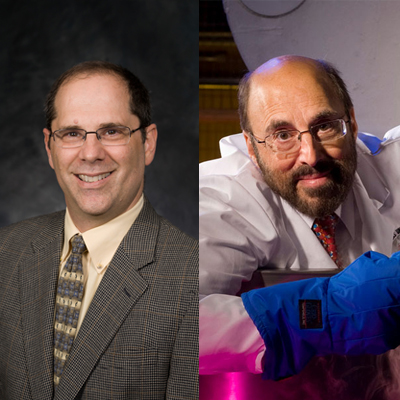Uncovering the genetic causes of tourette disorder
Tourette Disorder (TD) is defined by having both multiple motor and vocal tics that last for more than one year and onset is typically in early childhood. Tics are sudden, rapid, repeated, non-rhythmic movements (motor tics) or vocalizations (vocal tics). TD is a poorly understood, often debilitating disorder affecting as many as one in a 100 individuals worldwide. For many people, the media has negatively altered the perception of TD. While only a small fraction of individuals with TD experience complex vocal tics such as cursing, many patients have other complex or simple motor or vocal tics as well as obsessive-compulsive disorder (OCD) and/or attention-deficit/hyperactivity disorder (ADHD) that cause long-lasting impairment. Currently, there is no effective, specific treatment for TD. Drs. Gary Heiman and Jay Tischfield at Rutgers University, are seeking to uncover the genetic causes of TD with the hope of developing effective treatments that could improve ameliorate patients’ quality of life and restore productivity. Additionally, since TD is frequently associated with OCD, ADHD, anxiety, and depression, understanding genetic mechanisms of causality might also shed light on those often debilitating mental disorders.
Despite decades of evidence supporting a significant genetic contribution, progress in identifying specific risk alleles has been slow. To date, no single risk gene or genetic variation has been established as a uniform cause for TD. A major impediment to progress has been small sample sizes of patients to study. To overcome this hurdle, Drs. Heiman, Tischfield and colleagues formed the Tourette International Collaborative Genetics (TIC Genetics) project. The goal of TIC Genetics is to further the understanding of the genetic factors that cause TD by developing a large sample of diverse and well-characterized subjects and genetic samples (e.g., blood) to study. This will greatly contribute to the understanding of TD and may be key to developing new therapies in the future. Dr. Tischfield remarks, “These kids are suffering, sidelined in school, and often viewed as conduct problems.” Dr. Heiman adds, “They tend to be a very bright group, but society often doesn’t know what to do with them.” Fortunately, however, TIC Genetics is working to change these perceptions and make tools available for genomics research on individuals with TD.
In particular, current research includes:
-
Genetic Causes of TD: Drs. Heiman and Tischfield are conducting DNA sequencing and chip-based genotyping studies to detect de novo (new) and inherited rare sequence and structural variants. By understanding the genetic causes of TD and their developmental intersections and sharing them with the global research community, Drs. Heiman and Tischfield and colleagues are making strides in understanding the basic mechanisms that underlie TD.
-
Stem Cells: Drs. Heiman and Tischfield are creating induced pluripotent stem cells (i.e., adult white blood cells that have been genetically reprogrammed back to an embryonic stem cell-like state) to understand how particular genetic mutations can lead to functional changes in neurons derived from these stem cells. This work further extends their efforts in understanding the functional consequences of the genetic causes of TD.
-
TD Pathways: By conducting expression and network analyses, the team is investigating which genetic pathways are disrupted in TD. This would be a breakthrough in TD research and possibly could lead to important therapeutics. Although the TIC Genetics team has collected over 2000 samples, to begin deep genetic analysis of DNA, they are still working to locate additional families that will be required to unravel the major genetic pathways involved in TD.
-
Community Advocacy: At the Rutgers site, the research team also helps to educate graduate students and postdocs in the clinic alongside students that are training for doctorates in clinical psychology. In so doing, they are ensuring that practitioners that will one day be a part of the community that can advocate for children and families with TD.
Bio
Dr. Jay Tischfield directs the NIMH Center for Collaborative Genetic Studies of Mental Disorders for the entire country. His rigorous research, leadership, and activism have inspired and directed scientific leaders and practitioners for many years. However, the Center did not support research on TD, a situation that was profoundly altered when the head of a local patient advocacy group contacted him and asked why this was the case. He has since assembled an experienced team of researchers, clinicians, and graduate students to begin to unravel the genetic contributions leading to TD, and explains that his job now is “developing young careers so that this research goes on forever.”
Aside from research, in his free time, Dr. Tischfield enjoys his two large dogs that have “taken the place” of his grown children and scuba with his family. Additionally, he has a huge Donald Duck collection. A trip to his office will reveal only a small portion of the many collectables he owns.
Websites: http://tourette-repository.org/ & https://tic-genetics.org/
Dr. Gary Heiman’s research resides at the intersection between genetics, psychiatry and neurology. He is interested in understanding why many people with a neurological disorder like TD, epilepsy or Parkinson’s also often have a psychiatric disorder like depression, anxiety or obsessive-compulsive disorder. His vision has helped to expand the genetics of TD program, making it the most important resource for investigators studying TD worldwide.
Aside from research, Dr. Heiman developed an undergraduate Genetic Counseling Certificate Program at Rutgers, the only program of its kind worldwide, and starting a graduate program in genetic counseling. He enjoys spending his time with his wife and children. He enjoys traveling and participating in a monthly men’s book club. http://tourette-repository.org/index.html https://tic-genetics.org/
In the News
A Somerville nonprofit is not only raising awareness about Tourette syndrome, but also directly facilitating new research into the condition, thanks to a partnership with Rutgers University.
RU researchers share DNA in hunt for clues
A Somerville nonprofit is not only raising awareness about Tourette syndrome, but also directly facilitating new research into the condition, thanks to a partnership with Rutgers University.
RU researchers share DNA in hunt for clues


